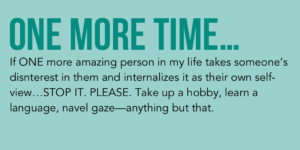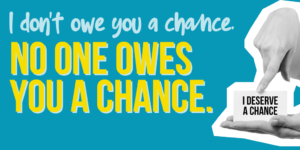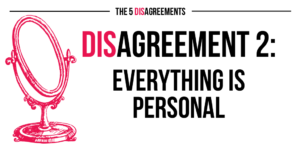When I was 16, I read “Brain Sex: The real difference between men and women,” by Anne Moir and David Jessel.
It was revelatory!
It explained SO MUCH!
AND… it paved the way for a scientific explanation for homosexuality. It legitimized it!
I felt inspired and empowered. I felt like this was the answer.
And now, well… I feel like it got part of it right, with what I personally understand about brains (through my own research and experience with ASPD and other areas) and what we have come to understand about gender.
NOTE: The book has been re-released, and apparently has been updated, with information about brain plasticity. It may now cover what the original book was missing. I don’t know. This is not a review for or against the current (or even the original) edition.
Here’s what I think is brilliant:
Regardless of chromosomes, the way our bodies and minds develop in the womb are widely varied in the biological sexes.
In other words, the way I understand this is to imagine a bunch of “bio-sex” switches in the brain, let’s say 10 (there are more, I’m simplifying for my sake as much as anything).
For default female, they might be:
X X X X X X X X X X
For male, they might be switch to:
Y Y Y Y Y Y Y Y Y Y
For various reasons, related to genetics, environment, birth order (yes, really), and more, these may not always get switched when they are supposed to for a “standard” installation (for a chromosomally male fetus), or they might get switched when they are not supposed to (for a chromosomally female fetus).
So, a chromosomal male baby might be born with only SOME of those switches made, like:
Y Y Y X Y Y X X X Y
Meaning in those areas, their behaviors and thought patterns might be naturally geared towards those we have traditionally associated with the opposite sex and/or gender.
So, if those “not switched” were related to sexual attraction (so, remained default, oriented towards males, for example), or aggression, then the baby might be chromosomally, sexually, and self-identifying as male/man, while being gay, and maybe not as aggressive as men are traditionally expected to be.
To be clear: I’m not offering value judgements on the switches in the brain myself or on whether they should be considered male or female or gendered at all. Just how it was presented, and the science.
Chromosomal Males may not have “men’s brains.”
And the same for chromosomal females not having “women’s brains.”
And there is nothing wrong with that. It is a variation on spectrums we as humans have represented for thousands of years.
There is not always a choice in how we think and learn.
We are not all good at everything. We are born with more potential in some areas than others. Some of that is a result of our “set” bio-sex.
AND… that a visual or chromosomal identification IS NOT ENOUGH to say what we will and won’t be excellent at.
Here’s where I think the original book didn’t get it right:
Male/Female brains is too simple a concept.
Perhaps they had to start somewhere for the book to be consumable, as I did up there, reducing the science to ten switches of X or Y.
To me, though, maybe a bit more focus on everything “gender related” being a range of variety.
Not enough focus on the idea of plasticity.
Again, this is something that I hear has been included in the new version.
The presentation sort of suggested that people whose switches didn’t get flipped (or got flipped unexpectedly) were “mistakes,” versus a part of human evolution that is necessary and desirable.
Why is it that each time a woman has a male pregnancy, the chance that her next son will be homosexual increases by 33%? If that’s true, perhaps there is good reason for it.
Why is it only a 1/5 chance that a gay twin’s twin will also be gay?
In the fight to “PROVE” that men and women are different, and that gays exist scientifically, I feel like they left behind the idea that these things don’t need justification.
In a rush to legitimize women who can parallel park and men who like men by saying, “It’s OK! It’s biological,” I feel like they left behind the agency of choice, of practice (I am better at parallel parking than many men I know, because I’ve practiced), and of sheer human variety as enough reason.
That was 30 years ago.
That same science led to books like “Men Are From Mars, Women Are From Venus,” which further the divide by attempting to explain it to us. The science is still being used today, to great controversy.
Focusing more on the differences between genders than the differences between people and how to overcome them, regardless of gender.
Are there, in your opinion, Male and Female brains? And significant difference between them?
Or is there a range of “identity switches” that are either 1s or 0s in every human, not necessarily tied to gender?
- Is your opinion based on research, personal experience, or both?
- Do you have additional resources on this topic for me/anyone to consider?
- If Male/Female is not used, how might you think these ideas could be presented simply?
- How might we as humans use these ideas to create greater understanding between us all?
To share something personal, when I have taken the “Brain Sex” type tests, I have consistently scored in a “male” range in my thinking. And yet, I identify as the gender I was assigned at birth and my chromosomal gender, and I have never felt I was anything but a tomboy at most.







